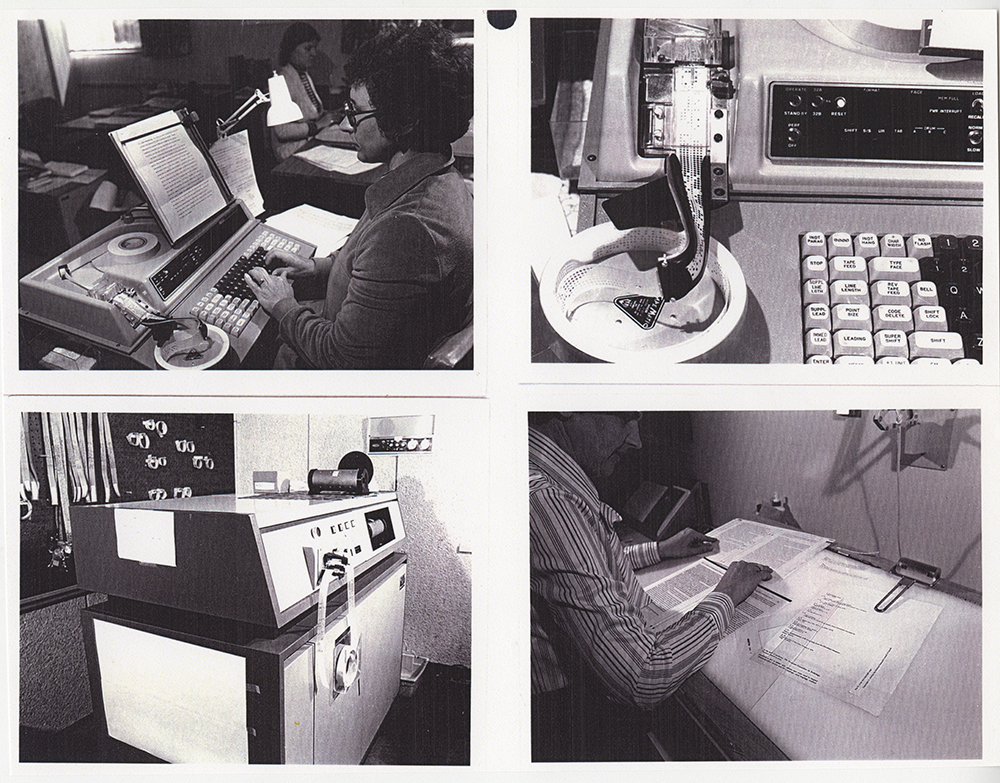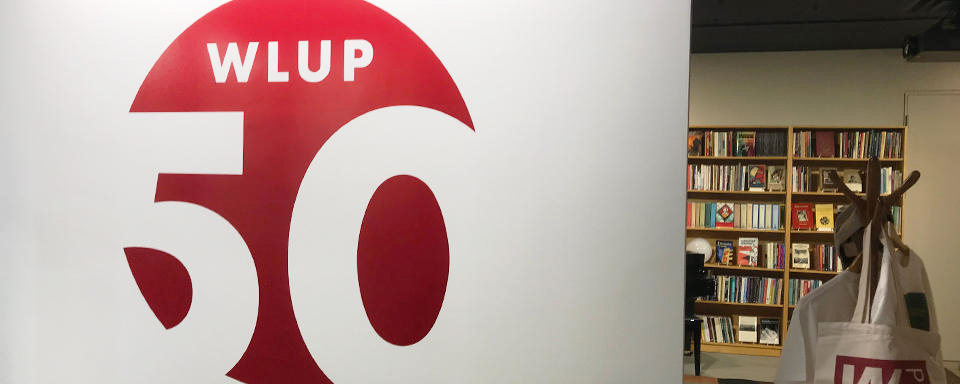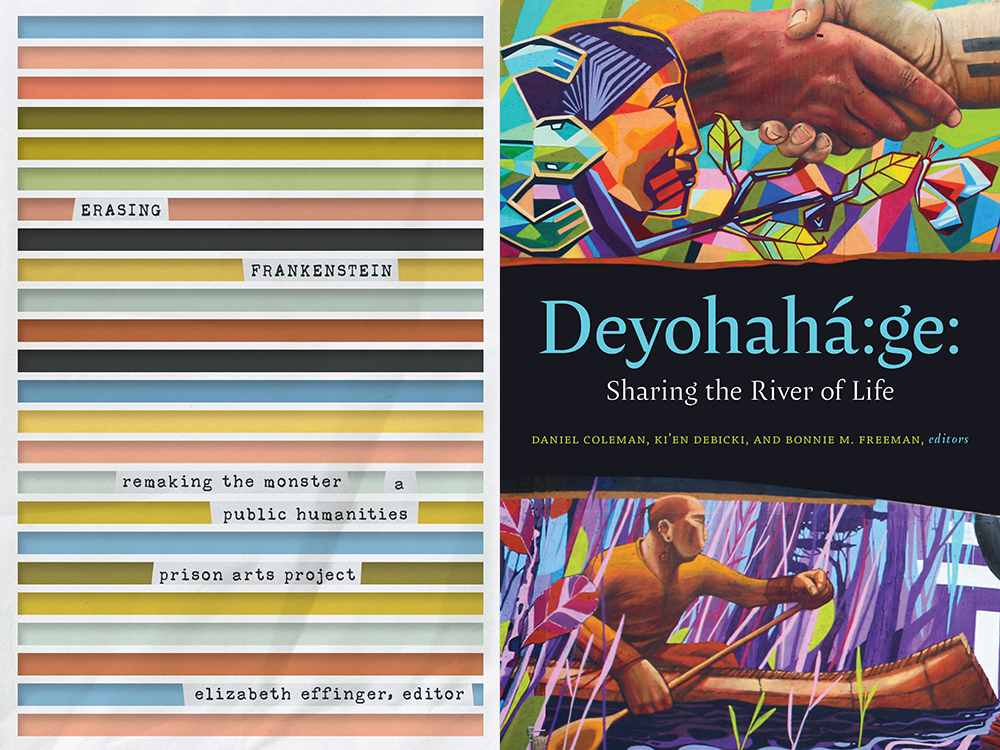We use cookies on this site to enhance your experience.
By selecting “Accept” and continuing to use this website, you consent to the use of cookies.
Search for academic programs, residence, tours and events and more.
Dec. 2, 2024
Print | PDFAs the new director and publisher of Wilfrid Laurier University Press, Mat Buntin is stepping into a leadership role at a key moment – marking the 50th anniversary of the press and looking ahead to the next chapter of its storied history.
“WLU Press holds a special place as a leader in creative and innovative university press publishing,” says Buntin. “From its very early days, the press was focused on affordability and adopting new technologies to publish and disseminate scholarship – and there was lots of experimentation along the way geared toward reaching new and broader readerships for the work.”
After a year-long celebration to mark its 50th anniversary in 2024, Buntin says WLU Press is well-prepared to meet the opportunities and challenges of the future.
“As an industry, university press publishers are at a moment of transition in technologies and business practices, as well as the ways in which we support scholarship and disseminate it,” says Buntin. “The press’ history of innovation and creativity remains an inspiration for our current team to meet those challenges. I think there are many opportunities for smaller presses to be nimble, innovative and creative.”

A selection of historic images from the WLU Press archives.
Buntin joined WLU Press as director and publisher in October, taking over the position from Siobhan McMenemy, who served as interim director of the press for much of its 50th anniversary year. In planning celebrations, McMenemy says she was struck by the common thread among the people who have worked with WLU Press over the years.
“The people who have made up WLU Press love ideas and love participating in the development of ideas,” says McMenemy, who has returned to her previous role as senior editor at WLU Press. “The 50th anniversary offered an opportunity to think about the publishing process and how it brings us together and has done so for five decades. The importance of the year of celebration was not just to think about our past, but to situate our present firmly within that trajectory because it will carry on. We have work still to do.”
Founded in 1974, WLU Press began under the direction of former Laurier faculty member Norman Wagner, who had a goal to produce scholarly publications quickly and affordably. Over the next five decades, WLU Press built a reputation as a leading publisher of scholarly books in the social sciences and humanities, defined by a spirit of creativity and technological innovation. Today, the press publishes up to 20 titles each year and has nearly 900 titles among its backlist, including print, ebooks and audiobooks.

WLU Press celebrated 50 years with an anniversary exhibition at the Robert Langen Art Gallery on Laurier’s Waterloo campus.
A highlight of 50th anniversary celebrations was the “WLU Press 50th Anniversary Exhibition,” which ran during May and June at the Robert Langen Art Gallery on Laurier’s Waterloo campus. Through photos, books, texts and artifacts, the exhibition highlighted the history of WLU Press, as well as the transformation of university press publishing during the past five decades. A monthly blog series featuring WLU Press voices past and present also helped mark the milestone year.
“WLU Press has played an integral role in Laurier’s history and enhanced the university’s reputation for academic excellence and institutional innovation,” says Laurier President and Vice-Chancellor Deborah MacLatchy. “The press has had a significant impact on the academic publishing landscape in Canada over the years.”
Also significant during the 50th anniversary was the acquisition of WLU Press historical records by Laurier Archives and Special Collections. Including manuscripts, page proofs, correspondence, policies, economic outlooks, sales statistics and book proposals, the records provide a lens into the history of WLU Press, as well as Laurier as an institution.
“These records offer a really interesting perspective on the dissemination of information and the refinement of ideas... They really help us understand the past, present and future of Laurier as a whole.”
“These records offer a really interesting perspective on the dissemination of information and the refinement of ideas,” says Amanda Oliver, head of Laurier Archives and Special Collections. “They also highlight the history of Laurier, showing activity and change on campus, how technology has changed and how the exchange of ideas has changed. They really help us understand the past, present and future of Laurier as a whole.”
Open to the university community and members of the public, the archival records will support researchers studying book history, print culture and publishing. They will also be of interest to anyone with a curiosity about book production, or the role of WLU Press in Laurier’s history.
“WLU Press has been a cornerstone in Laurier’s growth and academic evolution for 50 years,” says Laurier Provost and Vice-President Academic Heidi Northwood. “Its unwavering commitment to innovative ideas, creativity and scholarly excellence has earned it recognition far beyond Laurier.”

McMenemy says a defining characteristic of WLU Press over its first 50 years has been its willingness to embrace technological changes, including consistently utilizing the most up-to-date publishing technology. The press was among the first university presses to digitize an academic journal, the first university press to produce a book app, an early adopter of digitizing backlists, and in 1994 became one of the first scholarly publishers in Canada to host a website.
“It really is impossible to talk about those 50 years and not talk about the technological changes,” says McMenemy. “Technology changes dramatically and it’s not just been the fact that the press has had to change with technology in the way we physically produce books, but also in the way we think about what constitutes a scholarly publication.”
During recent years, WLU Press collaborated to build Amplify, a groundbreaking scholarly podcast network for Canadian researchers, and was named a Global Certified Accessible publisher by Benetech. The press has also embraced the use of blogs and social media, which have served to change the way WLU Press and its books are promoted.

A 1984 article in the Waterloo Chronicle highlighting WLU Press.
“We’ve always been on the cutting edge and have done some really fun things to make people sit up and take notice,” says Clare Hitchens, WLU Press sales and marketing coordinator. “The 50th anniversary brought a real sense of excitement about what we do.”
Throughout its five decades, WLU Press has published books that advance scholarship about big issues, as well as works by and about people historically excluded from the academy, including Indigenous Peoples, women, immigrants and members of racialized and LGBTQ+ communities. The press has also focused on titles of local significance, a trend Hitchens says will continue.
She points to the upcoming WLU Press titles Erasing Frankenstein, which showcases a creative exchange between incarcerated women and members of the Walls to Bridges Collective at the Grand Valley Institution for Women in Kitchener, and Deyohaha´:ge: Sharing the River of Life, about the Two-Row Wampum and Indigenous Peoples and settlers living along the Grand River.

The upcoming WLU Press titles Erasing Frankenstein and Deyohaha´:ge: Sharing the River of Life.
“What excites me most is a book that’s a great story and has the scholarly approach that we’re known for, but also has a local connection so people in the communities that Laurier is a part of can really feel themselves in it,” says Hitchens.
As WLU Press enters its next 50 years, Buntin, McMenemy and Hitchens say the press will continue to evolve with the times. But one thing will remain constant: the spirit of innovation and commitment to accessible, impactful scholarship that has characterized the press during its first five decades.
“The reason that WLU Press became a leader in scholarly publishing is because of a culture of curiosity, opportunity and innovation, as well as a willingness to say ‘yes’ and try new things,” says Buntin. “Moving forward, we will continue to listen to the communities with whom we’re engaged and seek out creative and emerging publishing opportunities to support their work.”